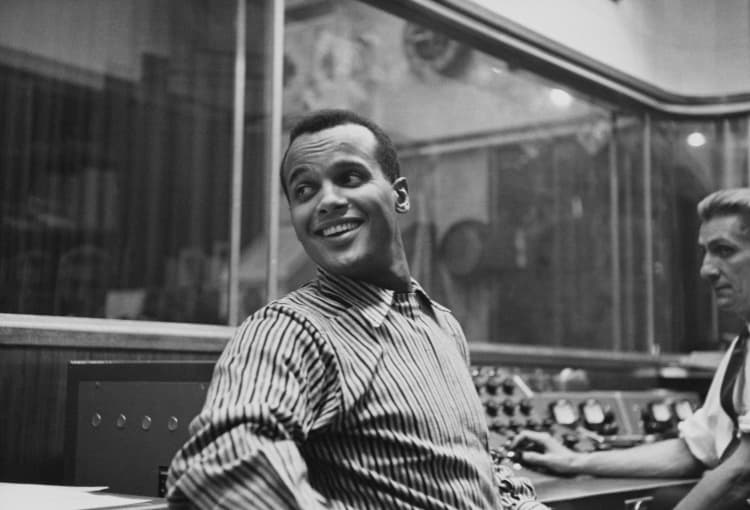Harry Belafonte dies at 96
A hugely popular singer and actor who brought Jamaican music into the U.S. mainstream, he used his platform to fight for civil rights.

Harry Belafonte, the prolific and hugely popular artist who brought Carribbean music into the American mainstream, has died. He passed away this morning (Tuesday, April 25) in his home on Manhattan’s Upper West Side, according to his longtime spokesman, Ken Sunshine, who also confirmed his cause of death as congestive heart failure. He was 96.
Born to Jamaican immigrants on March 1, 1927 in Harlem, he split his childhood between New York and his parents’ homeland. He served in the Navy during World War II and befriended the then-struggling actor Sydney Poitier while working as a janitor’s assistant after his return to U.S. soil. Together, they began performing in the American Negro Theatre together and took acting classes at The New School alongside Marlon Brando, Walter Matthau, Bea Arthur, and Tony Curtis.
By the time of his first album’s release in 1954, Belafonte was already a Tony-winning Broadway star, but Mark Twain and Other Folk Favorites failed to chart. In 1956, however, he released two number-one records, both of which were certified Gold by the Recording Industry Association of America: his self-titled sophomore effort and Calypso, the record that remains his most popular to date and contains the massive international hit “Banana Boat (Day-O).” He’d go on to release 30 studio LPs and eight live albums. He also appeared in more than 30 feature films, including the classic 1957 picture Island in the Sun, deemed controversial at the time of its release due to its on-screen portrayals of interracial romance.
Beyond the stage and screen, Belafonte was a fervent activist, using his unprecedented position as a Caribbean-American super-celebrity to fight for the cause of civil rights. A friend of the Rev. Dr. Martin Luther King, Jr., he bailed him and other movement leaders out of jail on multiple occasions, hosted him in his apartment when he traveled to New York, joined him in the 1963 March on Washington, and helped support his children after his assassination in 1968. (A lawsuit between Belafonte and Dr. King’s three children over several of the late reverend’s documents was settled out of court in 2014, with Belafonte retaining possession.) He also helped fund some of the movement’s most important projects, from Dr. King’s Southern Christian Leadership Conference to the Student Nonviolent Coordinating Committee.
He continued his humanitarian efforts well past the 1960s, supporting a cultural boycott of South Africa in the ’80s and helping to organize the famed 1985 Live Aid concert, a benefit show to fight famine across Africa. He became UNICEF’s good-will ambassador in 1987.
In his later years, he was a vocal critic of the Iraq War, calling George W. Bush “the greatest terrorist in the world.” He offered similarly caustic critiques to deep-pocketed Republican donors such as the Koch Brothers and, more recently, Donald Trump.
Belafonte was married three times: to Marguerite Byrd in 1948, to Julie Robinson in 1957, and to Pamela Frank in 2008. He is survived by Frank, as well as two children from each of his first two marriages (Adrienne Biesemeyer and Shari Belafonte with Byrd, Gina and David Belafonte with Robinson), two stepchildren from his third marriage (Sarah and Lindsey Frank), and eight grandchildren.





